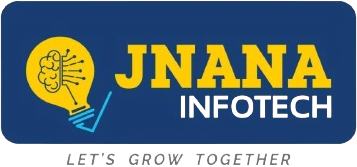
What is MONGO DB?
MongoDB is a popular, open-source, NoSQL database system. It is designed to handle large amounts of data and is well-suited for applications with rapidly changing data models. Here are some key characteristics and features of MongoDB:
NoSQL Database: Unlike traditional relational databases (like MySQL or PostgreSQL), MongoDB is a NoSQL database. This means it doesn’t rely on a fixed schema and can store data in flexible, JSON-like BSON (Binary JSON) format.
Document-Oriented: MongoDB stores data in documents, which are JSON-like objects. These documents can have a variable number of fields, and the structure can be changed over time. This allows for a flexible and dynamic data model.
Scalability: MongoDB is designed to be highly scalable. It can handle large amounts of data and high traffic loads. It supports horizontal scaling through sharding, which involves distributing data across multiple servers.
High Performance: MongoDB can provide high performance for read and write operations. It is designed to efficiently handle queries on large volumes of data.
Replication: MongoDB supports replication, which means it can maintain multiple copies of data across different servers. This provides redundancy and helps ensure data availability in case of hardware failures.
Ad Hoc Queries: MongoDB supports a wide range of queries, including ones that can perform complex aggregations. It also supports indexing to improve query performance.
Schema Evolution: Since MongoDB doesn’t require a predefined schema, it can easily adapt to changes in the data model. This makes it well-suited for projects where the data structure may evolve over time.
Geospatial and Text Search: MongoDB provides built-in support for geospatial queries, allowing for location-based searches. It also has powerful full-text search capabilities.
ACID Transactions: Starting from MongoDB 4.0, it supports multi-document ACID transactions, which ensures data consistency and integrity in complex operations involving multiple documents.
Community and Support: MongoDB has a large and active community of developers, and there are plenty of resources available, including documentation, tutorials, and forums. Additionally, MongoDB Inc., the company behind MongoDB, provides commercial support for businesses.
Why I Need to learn MONGO DB?
Learning MongoDB can be beneficial for several reasons, depending on your specific interests and career goals. Here are some compelling reasons why you might want to learn MongoDB:
Flexible Data Modeling: MongoDB’s document-oriented approach allows for flexible data models, making it suitable for projects where the data structure may evolve over time.
NoSQL Expertise: Understanding NoSQL databases like MongoDB is essential for modern application development. It provides an alternative to traditional, fixed-schema relational databases.
Scalability: MongoDB is designed to handle large volumes of data and high traffic loads. Learning how to scale and distribute data across multiple servers can be crucial for handling big data applications.
High Performance: MongoDB is designed for high-performance read and write operations. Knowing how to optimize queries and use indexes can lead to faster application response times.
Real-time Analytics and IoT: MongoDB’s ability to handle large volumes of data in real-time makes it well-suited for applications in industries like IoT (Internet of Things) and real-time analytics.
Geospatial and Text Search: If your projects involve location-based data or require powerful full-text search capabilities, MongoDB provides built-in support for these features.
Web and Mobile Development: MongoDB is widely used in web and mobile application development. Learning it can open up opportunities to work on a wide range of projects.
Job Opportunities: Many companies, especially in tech and startups, use MongoDB for their data storage needs. Having MongoDB skills can make you a more attractive candidate for job roles involving database management and application development.
Startups and Entrepreneurship: If you’re interested in starting your own tech company or working in a startup environment, knowing MongoDB can be particularly valuable. Many startups choose MongoDB for its scalability and flexibility.
Open Source Community: MongoDB has a large and active community of developers. Learning MongoDB means you have access to a wealth of resources, including documentation, tutorials, and forums.
Future-Proofing Your Skills: As technology continues to evolve, NoSQL databases like MongoDB are likely to play an increasingly important role in data management. Learning MongoDB now can future-proof your skills.
Data-Driven Decision Making: Understanding how to work with databases is crucial for making data-driven decisions. Knowing MongoDB can empower you to handle and analyze data effectively.
Quick Links
Reach Us
- Phone : +9189512 71223
- Email : jnanainfotechvijaynagar@gmail.com
- Address : Service road, 10th Cross Rd, SBI Staff Colony, Hoshalli Extension, Stage 1, Vijayanagar, Bengaluru, Karnataka 560040
Copyright © Jnana Infotech Vijayanagar Bangalore 2022 All rights Reserved
